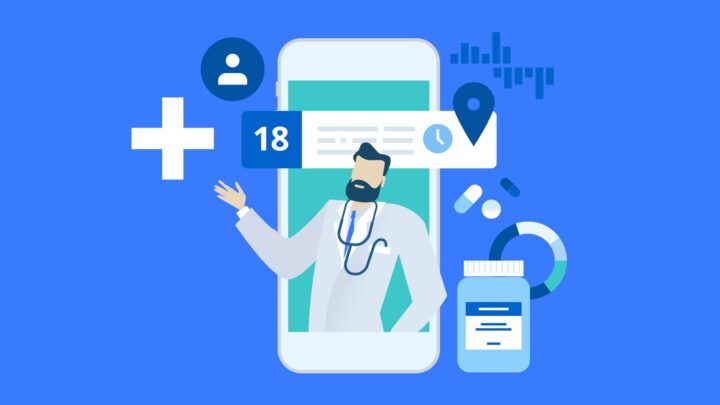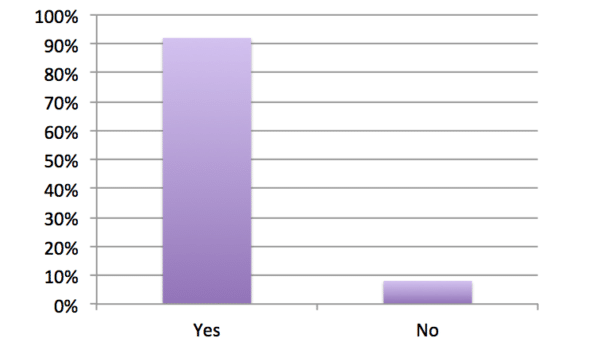
The COVID-19 health crisis is a pivotal point in history marked by the tragic loss of more than one million lives worldwide and far-reaching deterioration of well-established economies. As the impact of COVID-19 continues to evolve, affecting different industries in varying ways, the highly regulated healthcare environment is charged with overcoming its own compliance complexities with personalization at the forefront of strategy. Thought-leaders in the healthcare marketing industry have asserted that such goals can only be simultaneously met if healthcare fully embraces digital transformation as a cornerstone of its business model.
First-Party Data Is More Valuable Than Ever
Acting as a catalyst for change, COVID-19 has created an irreversible shift to online. As one example, healthcare providers (HCPs) have rapidly adopted tele-health, reveling in the outstanding value gained in return:
- High-level performance
- High-level acceptance from patients
- Modernized procedures
Given this shift online, strategic marketing decisions should be increasingly based off insights about physicians’ and patients’ digital journeys. To this end, first-party data has never been more valuable to contextualize predictable behavior, purchasing, prescribing and recommendation decisions.
Health Marketers’ Primary Task: Safeguarding HCP & Patient Data
HCPs have high expectations on pharma’s adoption of more strategic and proactive online approaches to both engaging and managing personal healthcare data. We are, after all, one industry.
Healthcare marketers’ first task: rethink and expand business models to safeguard HCPs’ personal interests and data as consumers, as well as their professional interests and data of their patients. The drives behind such changes are linked to:
- Consumer behavior: the more educated HCPs are on how digital marketing works, the less they appreciate being a part of it. A refocus on data processing transparency—having HCPs and patients at the center of a value exchange proposition—is essential at this time.
- How acutely and rapidly privacy laws change: new regulations worldwide enable individuals to be forgotten and to opt-out of data reselling. This shift pushes healthcare marketers to look into developing partnerships with reliable first-party data channels that are dedicated to privacy and can consistently assist subjects in the exercise of their data rights.
- Investment in Subject Matter Experts: surviving and thriving through regulatory change is not to be dealt single-handedly by Compliance and Legal teams. A Leadership Task Force Team with Legal, Compliance, IT Security, Marketing and UX Creative heads will need to hash out approaches to proactively absorb legislation requirements ahead of time, with minimal disruption to services, and at the same time personalize the experiences of HCPs and patients, keeping them engaged and confident in Healthcare’s technical and ethical ability to protect their data.
- How the tech industry has decreed death to third-party cookies: changing forever digital marketing as we know it, this pushes brands to rethink strategies for media targeting measurement. Contextual targeting, content sponsorships, first-party data brokers, and carefully selected partnerships are to be considered as ways of obtaining holistic, higher quality data than an average programmatic set.
Physician-Driven Platform Ecosystems—Valuable and Transformative
A recent article covering the digital transformation of the healthcare industry explores the rise of emerging platform ecosystems. Platform-based business models have increased substantially in number and size and their emergence has:
“…altered the way people interact (e.g., Facebook), search for information (e.g., Google), buy products (e.g., Amazon) and utilize services (e.g., Airbnb). By drawing upon value co-creation, ecosystem orchestration and facilitating transactions, digital platforms transform linear value chains into platform-mediated two-sided markets.”
How we enable privacy-first physician insights & engagement
From a physician perspective, the Sermo platform emulates a virtual doctors’ lounge, facilitating medical collaboration and crowdsourcing in a safe environment when cooperation between peers is more important than ever. From sharing challenging patient cases to asking tough questions, physicians come to Sermo to get the answers and support they need in real time. Within Sermo, doctors can talk openly about what matters most. It’s a fun, secure, and relaxing place where doctors can speak without repercussions. No other physician community provides anonymity, making us a unique community for honest peer-to-peer conversations and crowdsourcing.
Our physician engagement platform and research capabilities are designed to host user-friendly and privacy-aware interactions, which clearly explain why consenting to the processing of their data will benefit their user experience. Sermo supports timely data collection practices, explaining personal data collection purposes at the point of collection in surveys and polls and using timely prompts so consents are fully explicit 100% of the time. Informative pieces regarding social best practices, code of conduct, and confidentiality in personal and health data exchanges are also widely diffused by our team to HCPs to fuel awareness and discussions around data protection. Such practices are essential at a time when trust becomes a commodity which our industry depends on, and healthcare and privacy merge closer together.
To learn more about how Sermo can support your business in a privacy-first way, contact us at business@sermo.com.














